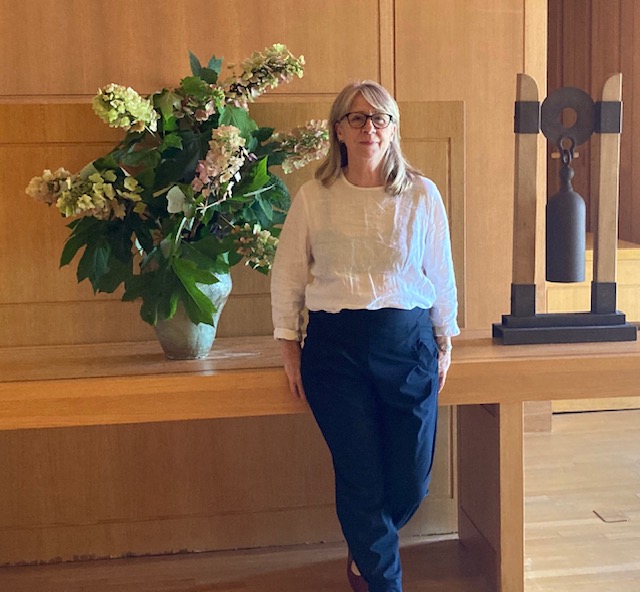The National Unitarian Fellowship
An international, modern, spiritual, multi-faith community.
The National Unitarian Fellowship promotes fellowship and community between people who value a free and positive approach to spirituality and religion.
NUF Manchester Conference 2024
Saturday 28 September 2024, 10am-4pm
Cross Street Chapel, Manchester
Annual One Day Open Conference
The morning talk:
Rev. Andi Phillips on ‘Artificial Intelligence and Human Values’,
Afternoon speaker:
Rev. Claire MacDonald on ‘Unitarian Values, Art and Community’.
All are welcome for a fascinating event!
£10 to attend, including lunch and refreshments.
Please register in advance by email at: nuf@nufonline.org.uk
Text / call: 07769 895 396.






Have you wanted to start your spiritual journey but don’t know where to begin?
You’re in the right place.
Let us not be afraid to seek meaning in our lives.
Let us have no fear to enter the spiritual dimension of ourselves and see where it leads.
The National Unitarian Fellowship exists to promote fellowship and understanding and to provide a channel of communication between people who value a free and positive approach to religion, which sets no dogmatic limits to the individual’s quest for spiritual truth.
It seeks to meet the needs of Unitarians and others who are in sympathy with this approach and who do not attend a Unitarian Church or Fellowship. It also offers to ministers and members of Unitarian congregations and Fellowships an opportunity for wider communication with others having a concern for religious values.
Meditation Archives
Click the button below to view the wide range of previous meditation and reflection archives.
Pastoral Care
Even if we are isolated geographically we do not have to be alone. Support through both difficult and not so difficult times is always at hand.
Contacts
As a member of NUF, you will be part of a national and international network for exchanging news, opinions, ideas, and occasionally meeting one another at regional gatherings and conferences.
UK TV
Click the button below to navigate your way through the various videos showing ranges or topics including the Unitarian Ministry Training.
Worship
A warm welcome is offered to all who wish to share in worship through the following sermons and prayers.
What is Unitarianism?
- is a religious movement in which individuals are free to follow their reason – there is no pressure from creed or scripture;
- grew out of Christianity and sees Jesus as a man to be followed not a god to be worshipped;
- is open to change in the light of new thought and discoveries.
Notice Board
Dorothy Archer 2023 Competition
Congratulations to Anne Mills of Bury who won the £250 prize by writing a new hymn.
NUF Manchester Conference 2024
Saturday 28 September 2024, 10am-4pm
Cross Street Chapel, Manchester
Annual One Day Open Conference
The morning talk:
Rev. Andi Phillips on ‘Artificial Intelligence and Human Values’,
Afternoon speaker:
Rev. Claire MacDonald on ‘Unitarian Values, Art and Community’.
All are welcome for a fascinating event!
£10 to attend, including lunch and refreshments.
Please register in advance by email at: nuf@nufonline.org.uk
Text / call: 07769 895 396.

The Word for Church is Art – Claire MacDonald
When a group of avant-garde dancers collaborated on a ground-breaking series of events in New York in 1963 they not only invented a new form but gave it the name of the church in which they performed. Judson Dance Theatre was born in Judson Memorial Church in Greenwich Village. It was without doubt the most influential dance collective in the history of modern dance and it wasn’t just chance that brought them to church, it was church. From the 1960s onwards faith leaders in the US and the UK have hosted, curated and supported artists and many faith spaces also became arts centres. My talk looks at some of the times and places where art and religion have come together in modern times, and on what is now happening in the interconnected world where art and progressive religious values, practices – and spaces, meet.

Would you like to be part of a new Unitarian Hindu Association?
Calling upon those Unitarians from a Hindu background or those interested in Hinduism and similar Eastern Philosophies. We would like to set up a Unitarian Hindu Association. You do not have to be Hindu to join this group, all are welcome.
We would like to hold meetings with speakers, opportunities to study and discuss Hindu concepts and to celebrate festivals together.
Unitarians share many values with Hinduism – most centrally, that there is a unity at the core of religious diversity. God can be experienced in many forms, with many faces, but underneath there is one ultimate reality. Like Hindus, Unitarians affirm the personal search for spiritual truth, the idea that all things are connected, and a respect for other religious paths.
For further information please contact Indra Sikdar at nuf@nufonline.org.uk
The latest issue of Faith and Freedom, Spring and Summer 2021, (Volume 74, Part 1) Number 192, is now available
This issue includes:
Unitarianism in New Zealand: Essay and Review by GRAHAM MURPHY
An extended essay and review of the second edition of Wayne Facer’s book A Vision Splendid: The Influential Life of William Jellie, A British Unitarian in New Zealand.
The commemoration of three Ulster Unitarians who died at the Somme by COLIN WALKER
Three young Ulstermen, all the sons of the influential local businessmen, all commemorated by Ulster Unitarian artist Rosamond Praeger. Dr Walker looks at their faith, their backgrounds and their legacy.
Incarnation: the Supernaturalist Story and the Humanitarian Story by FRANK WALKER
How do we discern the Divine in human life so often characterized by violence and hatred?
An Appearance of William Ellery Channing: A Chautauqua Performance by F. KEVIN MURPHY
William Ellery Channing looks back on his life.
Books Reviewed:
Martin Camroux (foreword by David R. Peel), Keeping Alive the Rumor of God: When Most People are Looking the Other Way. Reviewed by BOB JANIS DILLON
Bert Clough, Dancing with Mortality: Reflections of a Lapsed Atheist. Reviewed by JIM CORRIGALL
Marcus Braybrooke, Meeting Jewish Friends and Neighbours. Reviewed by PETER GODFREY
Wayne Facer, Prophet at the Gate. Norman Murray Bell and the Quest for Peace. Reviewed by GRAHAM MURPHY
Catherine Robinson (ed.), Fragments of Holiness. Reviewed by LENA COCKROFT
Cliff Reed. Beyond Darkness Words for Reflection. Reviewed by DAVID STEERS
Why Are We Here? Discerning Our Unitarian Mission in an Upturned World
NEW LINDSEY PRESS TITLE
Winter 2022 News & Views
How to be involved
We are all friendly, approachable people and would love to hear from you. Whether you want to achieve spiritual awakeness or just fancy a chat with other like-minded people, we will always be here.
Have a look at our facebook page for further discussion with more news and views.
And maybe give us a follow!
Start your spiritual journey today by using the contact form below to get in touch…
